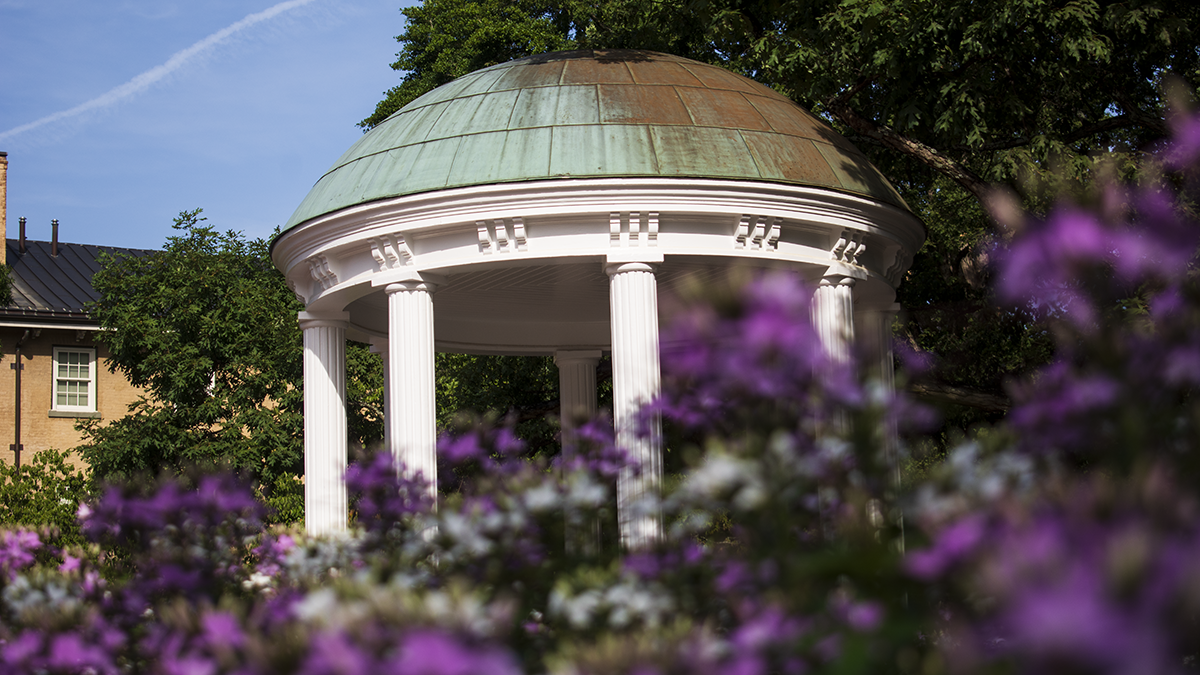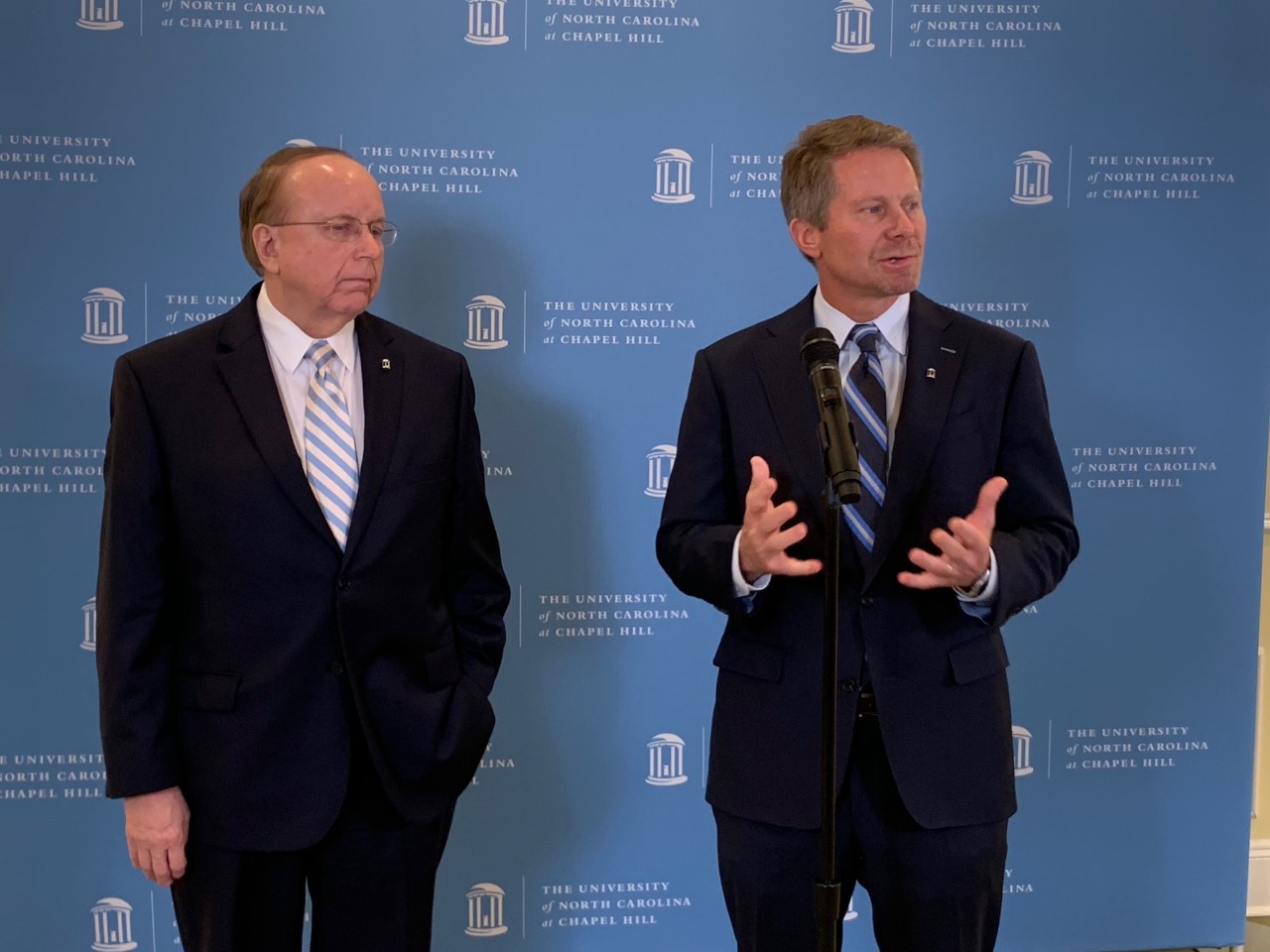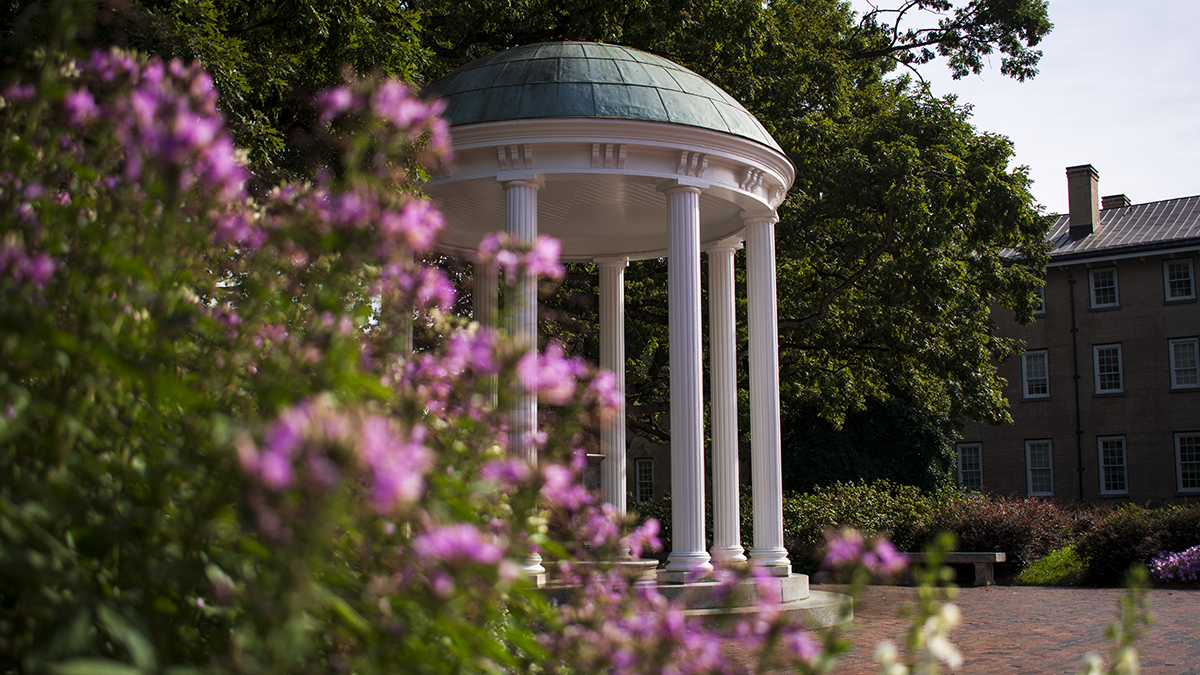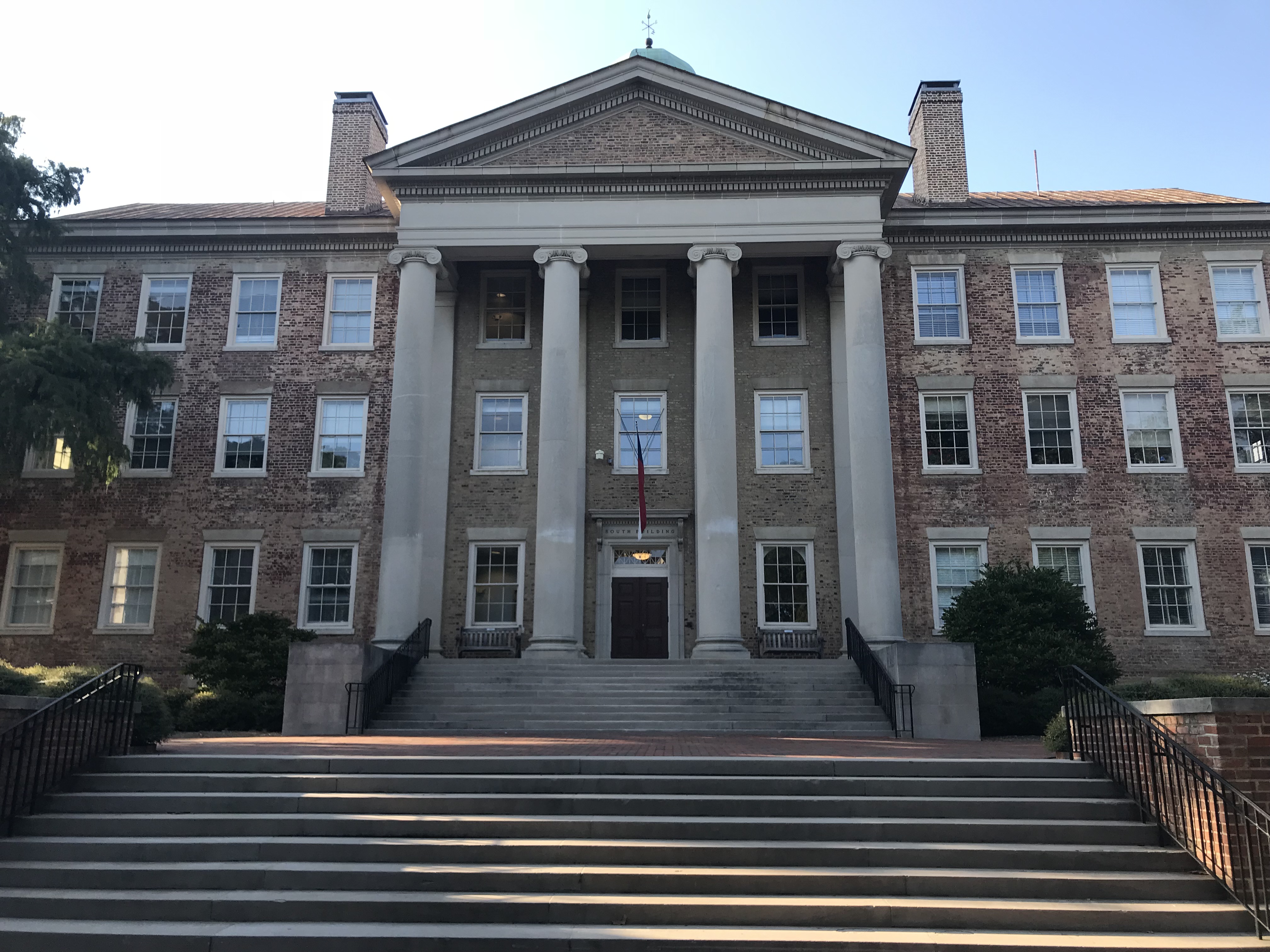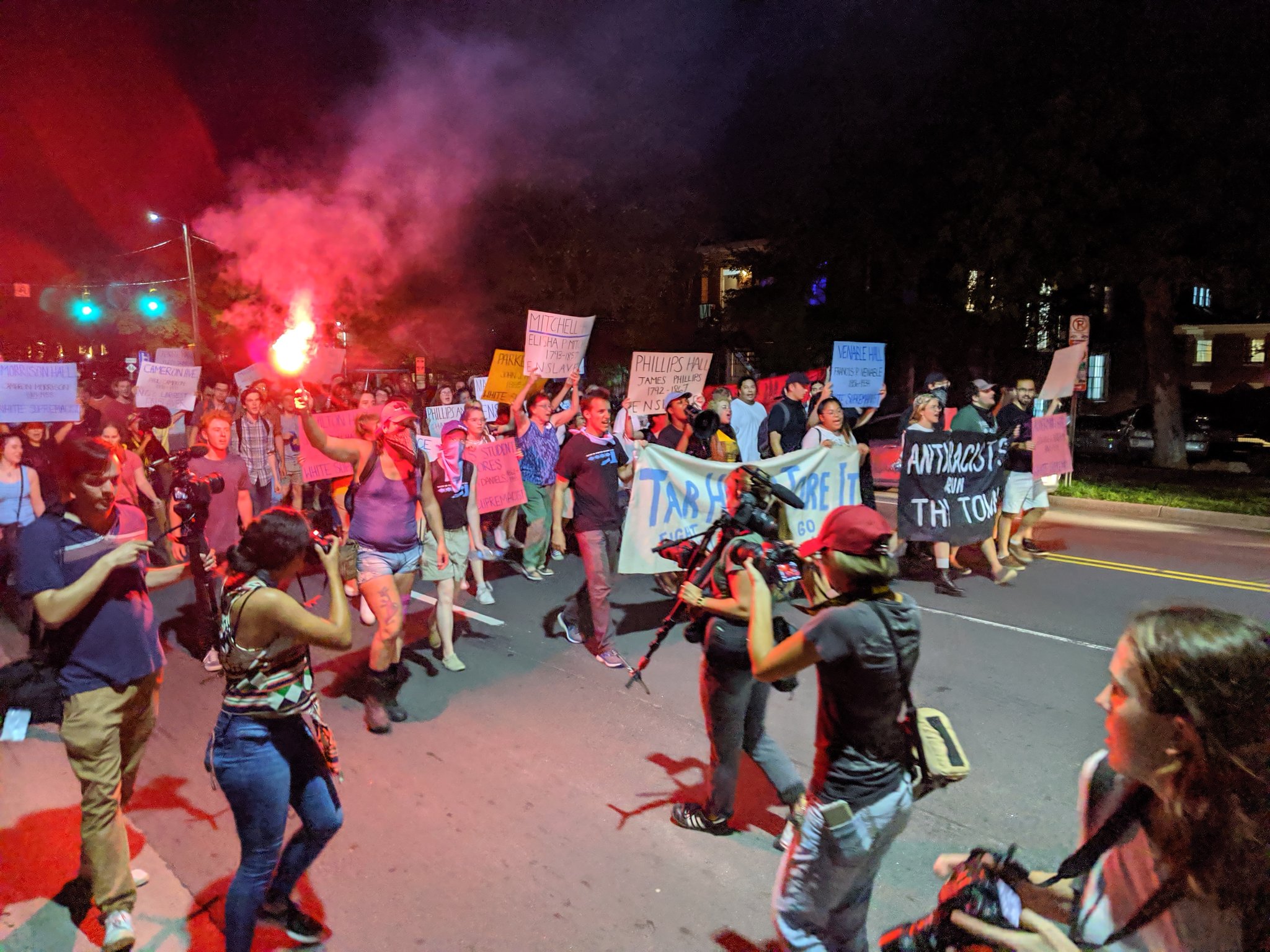The faculty of the School of Law is now among the growing list of groups that want the statue of confederate soldier Silent Sam off of UNC’s campus.
The school released a statement last week requesting that the UNC administration take immediate action to remove Silent Sam, because the statue sends a message of white supremacy that the university should refuse to endorse.
The statement refers to the speech given on June 2, 1913 by Julian Carr when the statue was erected, where Carr talks about what the confederate soldier meant to the “Anglo Saxon race” as well as boasting about whipping a “negro wench.”
According to the statement, UNC’s website acknowledges that many see Silent Sam as “a glorification of the Confederacy and thus a tacit defense of slavery.”
The statement goes on to say that keeping the statue erected undercuts the University’s mission “to teach a diverse community of undergraduate, graduate, and professional students to become the next generation of leaders,” and “the value of equality protected by North Carolina law and the United States Constitution.”
A 2015 law passed by the Republican-led General Assembly prevents the removal of monuments, and Chancellor Carol Folt has said that she would have the statue removed, if she had the legal authority to do so.
North Carolina Governor Roy Cooper has said that North Carolina law permits the University to remove or relocate the statue if it is a public safety threat.
The statement goes on to say that “if the University remains uncertain of its legal ability to act,” that they “seek a declaration in court to affirm UNC’s right to remove the statue,” to “spare students and faculty from the distraction, expense and pain of suing their home institution”.
The statement was signed by 34 professors.
The full statement is below:
The undersigned UNC School of Law faculty respectfully request that the UNC administration take immediate action to remove the monument of an armed Confederate soldier, known as Silent Sam, looming at the heart of UNC’s main campus. While we do not favor shutting down the ability of individuals to voice disagreeable opinions, we believe that the statue sends a message of white supremacy that the university should refuse to endorse.
On June 2, 1913, at the monument’s public dedication, Confederate war veteran Julian S. Carr said, “The present generation, I am persuaded, scarcely takes note of what the Confederate soldier meant to the welfare of the Anglo Saxon race. . . . if every State of the South had done what North Carolina did . . . the political geography of America would have been re-written.” He then told this story: “less than ninety days perhaps after my return from Appomattox, I horse-whipped a negro wench until her skirts hung in shreds, because upon the streets of this quiet village she had publicly insulted and maligned a Southern lady, and then rushed for protection to these University buildings.”
From the moment of its dedication, Carr’s racist words cemented the monument as a symbol of white supremacy, violence and indignity. Even today, UNC’s website acknowledges that many see Silent Sam as “a glorification of the Confederacy and thus a tacit defense of slavery.” To many in our community, the armed soldier expresses the idea that some in our community are not equal.
This disparaging and marginalizing symbol has no place at the core of an inclusive learning environment. We also believe that the message it sends undercuts the University’s mission “to teach a diverse community of undergraduate, graduate, and professional students to become the next generation of leaders.” We are particularly concerned about the statue’s symbolism given the Board of Governors’ recent ban on representation or counsel by the Center for Civil Rights.
Maintaining this monument undercuts the value of equality protected by North Carolina law and the United States Constitution. We note that federal law obliges the University to provide an inclusive learning environment free of racial hostility. Out of concern for public safety, Chapel Hill Mayor Pam Hemminger called for the monument to be moved, and North Carolina Governor Roy Cooper advised UNC that North Carolina law permits the University to remove or relocate the statue.
We stand with our students and faculty who have sought legal counsel to request the statue’s removal in order to affirm their dignity and equal place in our community. If the University remains uncertain of its legal ability to act, we ask it to seek a declaration in court to affirm UNC’s right to remove the statue. This path would spare our students and faculty from the distraction, expense and pain of suing their home institution.
As our students and community look to the UNC administration and faculty for guidance, we must answer them with meaningful action. For all of these reasons, we request the immediate removal of this divisive symbol to affirm our commitment to the value of equality enshrined in the United States Constitution.
Kimberly C. Bishop, Clinical Professor of Law
John Charles Boger, Wade Edwards Distinguished Professor of Law Emeritus
Kenneth S. Broun, Henry Brandis Professor of Law Emeritus
Patricia L. Bryan, Henry P. Brandis Distinguished Professor of Law
Andrew Chin, Professor of Law
John Martin Conley, William Rand Kenan Jr. Professor of Law
Charles Edward Daye, Henry Brandis Professor of Law Emeritus
Maxine Eichner, Graham Kenan Distinguished Professor of Law
Kate Sablosky Elengold, Clinical Associate Professor
Barbara A. Fedders, Assistant Professor of Law
Laura N. Gasaway, Paul B. Eaton Distinguished Professor of Law Emerita
Deborah R. Gerhardt, Associate Professor of Law
Michael J. Gerhardt, Samuel Ashe Distinguished Professor in Constitutional Law
Melissa B. Jacoby, Graham Kenan Professor of Law
Eisha Jain, Assistant Professor of Law
Thomas A. Kelley III, Paul B. Eaton Distinguished Professor of Law and Interim Director of Clinical Programs
Joseph E. Kennedy, Martha Brandis Term Professor of Law
Catherine Y. Kim, George R. Ward Term Professor of Law, Associate Professor of Law
Joan H. Krause, Dan K. Moore Distinguished Professor of Law
Holning S. Lau, Willie Person Mangum Distinguished Professor of Law, Associate Dean for Faculty Development, and Faculty Director of the LL.M. Program
Peter Nemerovski, Clinical Associate Professor
Gene R. Nichol, Boyd Tinsley Distinguished Professor of Law
Donna L. Nixon, Clinical Assistant Professor of Law and Electronic Resources Librarian
Beth S. Posner, Clinical Assistant Professor of Law
Richard Rosen, Professor of Law Emeritus
Kathryn A. Sabbeth, Associate Professor of Law
Maria Savasta-Kennedy, Clinical Professor of Law and Director of the Externship Program
Richard S. Saver, Arch T. Allen Distinguished Professor of Law
Theodore M. Shaw, Julius L. Chambers Distinguished Professor of Law and Director of the Center for Civil Rights
Craig T. Smith, Assistant Dean for the Writing and Learning Resources Center and Clinical Professor of Law
Kathleen DeLaney Thomas, Assistant Professor of Law and Director of UNC School of Law Tax Institute
Judith Welch Wegner, Burton Craig Professor of Law Emerita
W. Mark C. Weidemaier, Ralph M. Stockton, Jr. Distinguished Professor
Arthur Mark Weisburd, Reef C. Ivey Distinguished Professor of Law
Deborah M. Weissman, Reef C. Ivey Distinguished Professor of Law
-October 26, 2017

